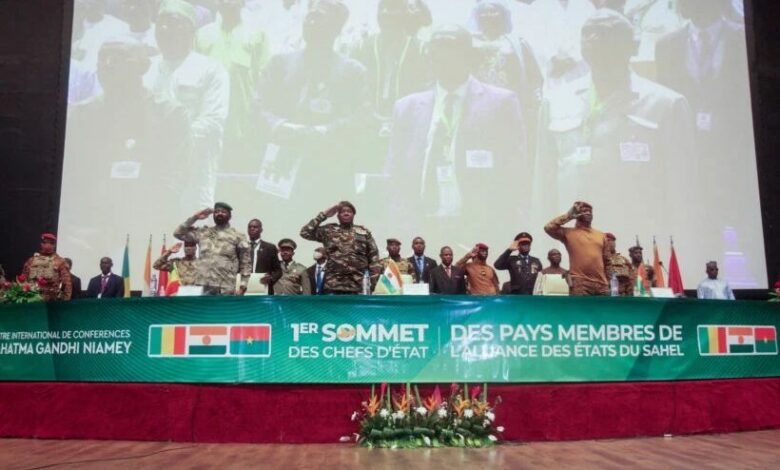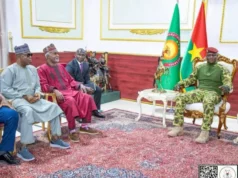The Alliance of Sahel States, Mali, Burkina Faso, and Niger is set to implement new biometric passports to solidify their withdrawal from ECOWAS.
The three countries, all under military rule following coups between 2020 and 2023, announced their intention to leave the regional bloc in January.
This move follows sanctions imposed by ECOWAS in response to the coups, aimed at pressuring the juntas to reinstate civilian governance. However, the Sahel Alliance has resisted these calls, choosing instead to strengthen their alliance.
Malian junta leader Colonel Assimi Goïta, who also serves as the acting president of the Sahel Alliance, announced the new passport initiative in a televised address on Sunday. “In the coming days, a new biometric passport of the [alliance] will be put into circulation with the aim of harmonising travel documents in our common area,” he stated.
The announcement coincided with the first anniversary of the alliance’s formation. Colonel Goïta also revealed plans to establish a joint service to promote “harmonious dissemination of information” within the three nations.
Burkina Faso had previously indicated its decision to launch a new biometric passport without the ECOWAS logo. The impact of these new passports on the travel of citizens to other ECOWAS states, where they currently enjoy visa-free movement under the regional passport, remains uncertain.
In July, the junta leaders declared an “irrevocable” departure from ECOWAS, expressing their desire to build a community based on African values, free from external influence. “They said they wanted to build a community of sovereign peoples based on African values and ‘far from the control of foreign powers’,” the report stated.
ECOWAS has expressed concerns about the potential for regional disintegration and heightened insecurity posed by the formalisation of the breakaway group. Efforts to encourage the Sahel nations to rejoin the bloc are ongoing.
The Sahel Alliance, formed last year to enhance military cooperation, expanded into a confederation in July, broadening its scope beyond security matters. The region has been grappling with jihadist violence for decades, resulting in thousands of deaths and millions of displaced people.
While the military leaders cited tackling the insurgency as a justification for the coups, they have yet to achieve significant progress in quelling the violence. All three countries have expelled French troops, who were assisting in the fight against jihadist groups, and have turned to Russia for military support.










